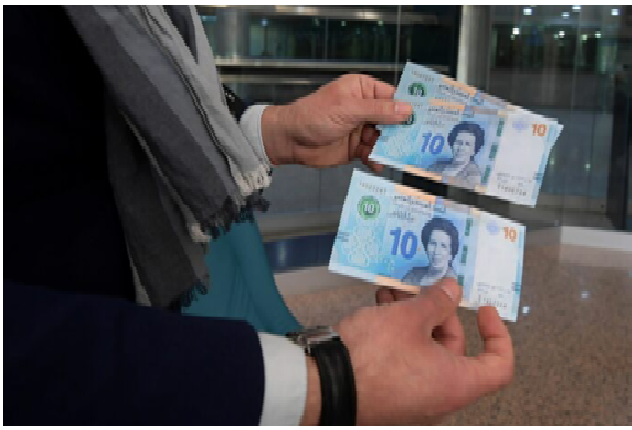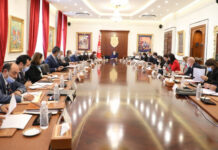Tunisian markets in the past 10 years have seen waves of price increases that have lost 40% of Tunisians’ spending capacity, according to a study by the Tunisian General Labour Union (UGTT) in addition to the wave of high prices caused by the Coruna crisis, and despite calls by the Presidency to try to take into account the purchasing power of citizens, prices at consumption increased in September by 0.2%, according to the National Institute of Statistics
Illegal back-end profit margin
Lotfi Rayhi, president of the Tunisian Consumer Guidance Organization (JDD tunise), explained that the high prices are mainly due to the inability of the state to structure prices and the failure to apply the decisions of the Ministry of Commerce on the ground, such as the decision to reduce poultry, cleaning materials and vegetables.
Rayhi added that the high prices are also due to the application of large commercial spaces for what is known as the rear and front profit margin, i.e. a gross profit margin estimated at about 70% as he put it.
With regard to the president’s recent calls for price cuts, Al-Rayhi stressed that the interaction with the head of state was merely a formal response and was not actually applied and the major commercial spaces did not basically give up on the back profit margin, which is illegal and the main cause of the price hike.
Lobbies control price structure
Rayhi added that as long as the lobbies control the Tunisian market, prices will not fall, for example, the white meat system is controlled by the sale price of composite feed, which applies a comb profit margin, which is why the consumer guidance organization is surprised by the decisions of the Ministry of Commerce in this regard, which cannot be applied on the ground, traders cannot sell at prices that return to them at loss, in addition to this crisis deepened by the phenomenon of monopoly and speculation, Whereby it has a big part in controlling the structure of prices because monopoly is to buy a product in huge quantities and put it in refrigeration stores and then pumped in the wholesale markets in small quantities to increase the price because of the lack of the product and be the monopolist then controlling the prices and pumping the product in other markets.
Crisis in providing subsidized oil
Lotfi Rayhi pointed out that the crisis of loss of subsidized oil is mainly due to the lack of supply of oil plants with the necessary quantities on a regular basis in the refining and canning process by the National Oil Bureau and this is considered a failure of the state at the level of pumping the required quantities sufficiently and this opens the door to speculation in prices.
Tunisian dinar deprecision
While economist Ridha Shkindali suggested that the rise in prices is due to the lack of control of distribution routes in addition to the phenomenon of smuggling and the scarcity of production processes, where there is no rise in the rate of economic growth, he pointed out that there are reasons related to economic policies such as the flexible exchange rate policy pursued by the state and mainly the central bank, which contributed to the decline in the value of the Tunisian dinar against hard currency, Thus, companies and institutions import their supplies in hard currency, which reflects negatively on prices, and Shakandali stressed that the tax pressure in performance on institutions trying to maintain their profit margin results in higher prices.
While the reasons for the rise in prices in Tunisia differ between the lobbies and the depreciation of the Tunisian dinar in the face of hard currency, the Tunisian hope remains to find solutions to ensure a balanced purchasing value and accessible to citizens.
Rifi-JDD











